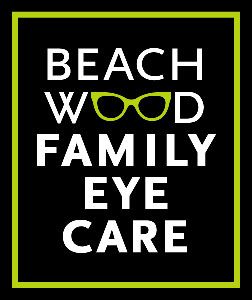
The Vestibular Disorders Organization states that binocular vision dysfunction, or BVD, is a collection of eye conditions. These vision issues make it difficult for the eyes to work in sync. This group of disorders results in the misalignment of your eyes’ lines of sight. Diagnosing and managing BVD is possible with NeuroVisual™ medicine. Here are the details.
Symptoms for Diagnosing BVD
Research shows that most people do not know that they have this condition until specific symptoms occur. Even the slightest misalignment of the eyes can cause problems such as strain. Your eye muscles work harder to align your vision. That is why the following symptoms occur:
For physical symptoms, there are neck, shoulder, and back pains. Dizziness and poor coordination can cause you to move sideways when you walk or fall often. You develop motion sickness, head tilting, and nausea. You may also find yourself bumping into shelves when you walk down a corridor or aisle.
Anxiety symptoms include a dislike of unfamiliar or open areas. There is always a high degree of anxiety and panic, especially when you enter crowded areas.
For visual symptoms, you may have light sensitivity and eye strain that contribute to your migraines. There is often pain when you move your eyes. You may also see halos around light sources at night.
Reading symptoms include difficulty maintaining attention. You may lose focus and tire right away. Words tend to float, which can reduce your reading comprehension.
For driving symptoms, there is difficulty seeing in low light or at night. You may also avoid driving because of your anxiety. Your poor depth perception makes it difficult for you to judge distances.
Binocular vision symptoms include poor hand-body-eye coordination and depth perception. You also tend to close one eye, squint, or tilt your head when you try to see. Double vision also becomes an issue.
Identifying the symptoms is the first step in treating BVD with NeuroVisual medicine. Studies show that testing for this eye condition is different from a traditional comprehension eye exam. Conventional eye tests spot eye diseases. They can also determine your level of vision at various distances. But these tests do not measure the visual skills that BVD affects.
NeuroVisual medicine will diagnose BVD through a complete vision and ocular exam. Any refractive problem must be treated first before testing your binocular vision. Assessing your vertical alignment is possible with the red lens test, Von Graefe phoria test, and cover test. Your eye doctor can also add small numbers of neutralizing vertical prisms to a test frame with your refractive prescription.
Managing BVD Through NeuroVisual Medicine
BVD patients have overworked and tense eye alignment muscles. These muscles can relax by wearing a realigning prism right away. Your eye doctor will prescribe less than the complete amount of prism at first. You need to wear this for two to four weeks.
The prism will allow your eye alignment muscles to experience progressive relaxation. The initial treatment will prepare you for the full amount of prism in your second set of corrective lenses. It will take two visits to complete the treatment. Most patients report significant relief while wearing the right amount of prism.
NeuroVisual medicine is a drug-free and surgery-free way of correcting BVD. At Beach Wood Family Eye Care, we help our patients by providing high-quality eye care products and services. You can visit our clinic in Beachwood, Ohio, for an in-person consultation. Please call (216) 815-1810 to set up an appointment or ask about our NeuroVisual medicine BVD treatment packages.









